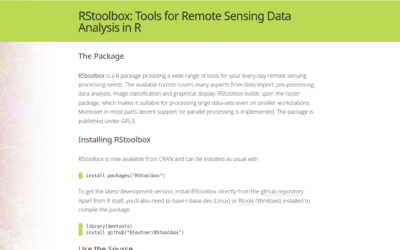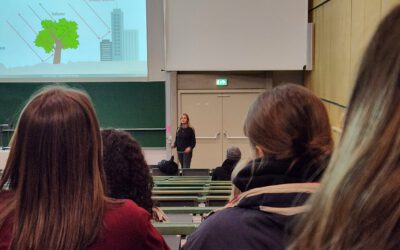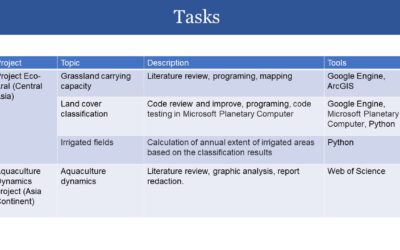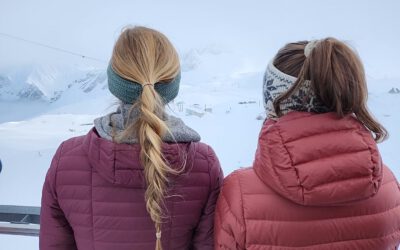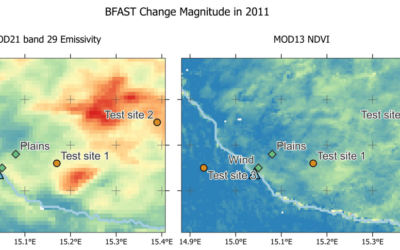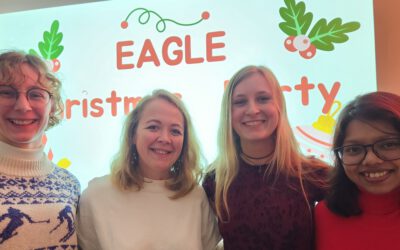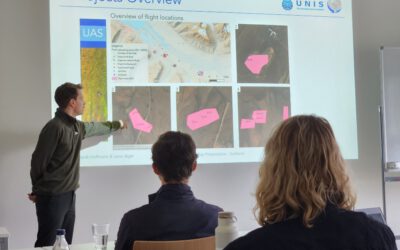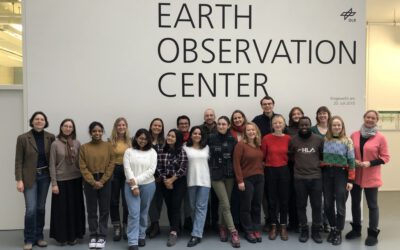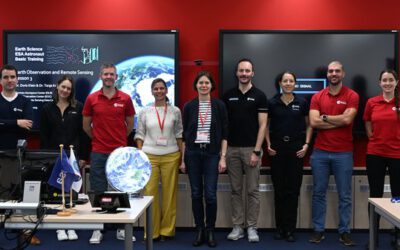Aim
Modern exploration for georesources is based on the spatial quantification of all those geological parameters relevant to the formation of mineral deposits. The students will obtain knowledge of the methods that can be applied to the formulation of mineral potential maps for a given region.
Content
Mineral deposits are considered products of complex mineral systems, which can be described by a number of parameters that vary in space and time. Various methods of spatially quantifying these parameters and integrating them into mineral potential maps will be discussed and applied with the help of conventional GIS software.
Coding
Coding examples and individual work will be covered
Software
Various software programs will be used, but mainly OpenSource software such as R.
Techniques
Different techniques will be introduced and practically applied.
Content
The content of scientific with regard to the audience will be discussed.
General Course News and Updates
RStoolbox now maintained by our EAGLE Konstantin Müller
we are very happy that our EAGLE Konstantin Müller took over the maintenance and further development of the remote sensing R stats package RStoolbox. Of course the "older" developers like Jakob Schwalb-Willmann (also an old EAGLE) and Benjamin Leutner (also our old...
EAGLE students train scientific presentations
Within our scientific presentation course within the EAGLE Msc our students also have to learn how deliver good scientific presentation within a large lecture room and for a larger crowd of scientists. Therefore we expose them to the large number of bsc students...
Inno Lab Report by Helena Wehner on January 23rd at 12:30 p.m.
On Tuesday, January 23rd at 12:30 Helena Wehner will present her inno lab report "Low-Cost UAV for Conservation in the Conservation area „Biosphärenreservat Rhön"" (seminar room 3, John-Skilton-Str. 4a). Hosting Institution: Biosphärenreservat Rhön Supervisors: Jonas...
Internship Report by Luis David Almeida Famada
On Tuesday, January 23rd at 12:00 a.m. Luis David Almeida Famada will present his internship report at DLR " "Land Use and Resource Management" Hosting Institution: DLR – Deutsches Zentrum für Luft- und Raumfahrt Supervisors: Dr. Soner Üreyen, Deutsches Luft- und...
EAGLEs high up in the mountains
Some of our EAGLEs went up to the research station on the highest mountain of Germany to explore the research activities conducted in this area and discuss what remote sensing can contribute. The met ecologists, botanists and other disciplines and learned what Earth...
Article published by our EAGLE Laura Obrecht
Just before the end of last year Lauras manuscript about fractional cover analysis in Namibia got published! Her research is titled "Mapping Changes in Fractional Vegetation Cover on the Namib Gravel Plains with Satellite-Retrieved Land Surface Emissivity Data"....
EAGLE Xmas party
After a bit more than 2 months of intense Earth Observation courses and lots of studying of radar, cloud computing, r and python programming and much more the EAGLEs are celebrating the end of the year and two weeks break before the second part of the winter terms...
EAGLEs presented their work in the Arctic and South Africa
Today 5 of our EAGLE students presented their work in the past months in the Arctic using remote sensing data, space-borne and UAS, for ecological and conservation applications. Beside their very impressive scientific results did they also report on their general life...
EAGLEs at DLR DFD LAX
As part of the lecture by Claudia Künzer all EAGLEs of her course also visit the Earth Observation Center of DLR in Oberfpaffenhofen and listen to various talks by remote sensing scientists working in Oberpfaffenhofen: Patrick Sogno, an EAGLE alumni and also PhD...
EAGLE lecturer also training ESA astronauts on earth observation
One of our EAGLE lecturer; Dr. Doris Klein, is not only teaching remote sensing to our international EAGLE students but also to future astronauts! Great to see that earth observation is also trained within other disciplines than our own specific remote sensing MSc....

